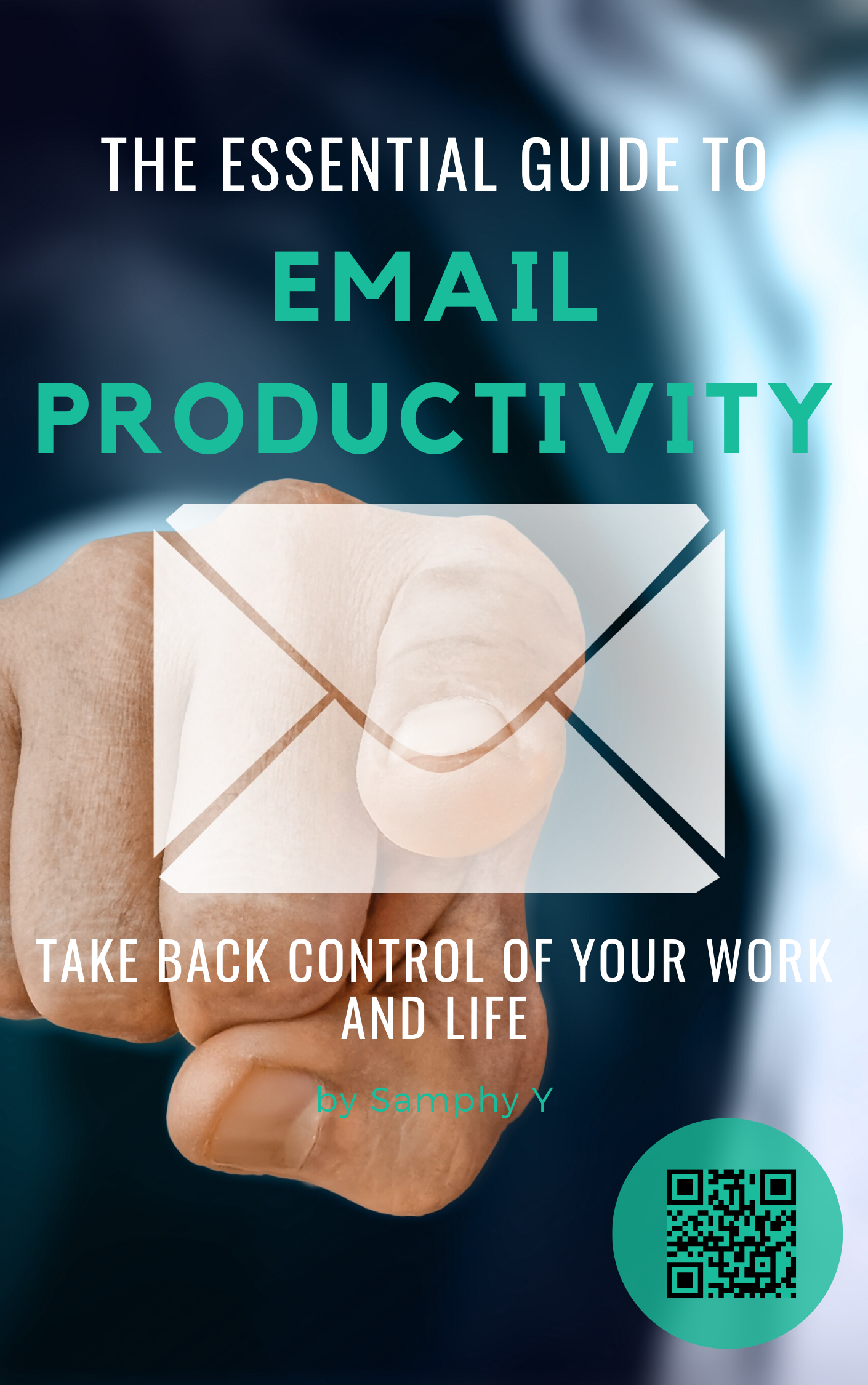How can you be focused at work without getting distracted, especially as distractions come from every direction, in all sorts of forms?
Take just social media and information consumption alone.
A 2012 McKinsey study found that the average knowledge worker spends more than 60 percent of the workweek engaged in electronic communication and Internet searching.[1]Newport, Cal. Deep Work: Rules for Focused Success in a Distracted World (p. 5-6). Grand Central Publishing. Kindle Edition. And, close to 30 percent of a worker’s time goes to reading and answering email and messages, let alone meetings and other low-value tasks.
In 2011, you consumed about five times as much information per day as you would have back in the 1980th.[2]Richard Allen, “Welcome to the Information Age—174 Newspapers a Day,” Daily Telegraph, February 11, … Continue reading That is the equivalent of 174 newspapers a day. On the one hand, it means that you can acquire any knowledge for free. On the other hand, analysis paralysis, intellectual laziness, mindless consumption are drowning some people in the vast ocean of information.
The benefits of focus at work should be obvious.
With social media, instant messaging, the ever-increasing access to information these days, the question about how to stay focused at work should be more critical than ever. And, this is what this guide will show you.
Specifically, you will learn:
- Why can’t I concentrate at work?
- How can I focus better at work?
- How do you work when you can’t focus?
- How do I shift my focus?
- Key takeaways
Let’s dive right in.
Why can’t I concentrate at work?

In this section, we will explore possible factors contributing to the inability to get focused at work. Medical and psychological reasons and lifestyle changes could be primarily responsible for this.
Here are seven common reasons:
Your energy is out of balance.
According to The Power of Full Engagement, you need to maintain the four energy dimensions: physical, emotional, mental, and spiritual — to be fully engaged and perform at your best. So, if you can’t get focused, you could be too tired, emotionally disconnected, mentally broken, or misaligned spiritually.
Evaluate your energy sources. The overarching question is this: How am I feeling right now — physically, emotionally, mentally, and spiritually?
You’re doing more than you can handle.
Doing too much affects your ability to focus in several ways. It causes anxiety. You tend to multitask (although mentally, sometimes), affecting many areas of your career and life.[3]he Negative Effects of Multitasking in the Workplace. (2012, October 16). Workplace Wellness Systems. http://workplacewellnesssystems.co.nz/the-negative-effects-of-multitasking-in-the-workplace/ Furthermore, when you try to swallow more than you can chew, frustration and stress would be inevitable. As a result, these will impede your ability to focus and complete your task.
Working for too long could make it hard to concentrate.
Your energy is finite. A research study found that if you have already worked intensely for 4-5 hours, the chances are that you have already depleted your energy for focused concentration.[4]Ericsson, K. A., Krampe, R. T., & Tesch-Römer, C. (1993). The role of deliberate practice in the acquisition of expert performance. Psychological Review, 100(3), 363. … Continue reading
To maintain your energy level, you must balance the four sources of energy: physical, emotional, mental, and spiritual. In their best-selling book, The Power of Full Engagement, Jim Loehr and Tony Schwartz recommend taking a break every 90-120 minutes. Furthermore, never underestimate the power of rest and Recovery. We will discuss more on that later in this guide. For now, it is crucial to bear in mind that you need to take regular breaks and have enough sleep.
Lack of motivation affects the ability to get focused.
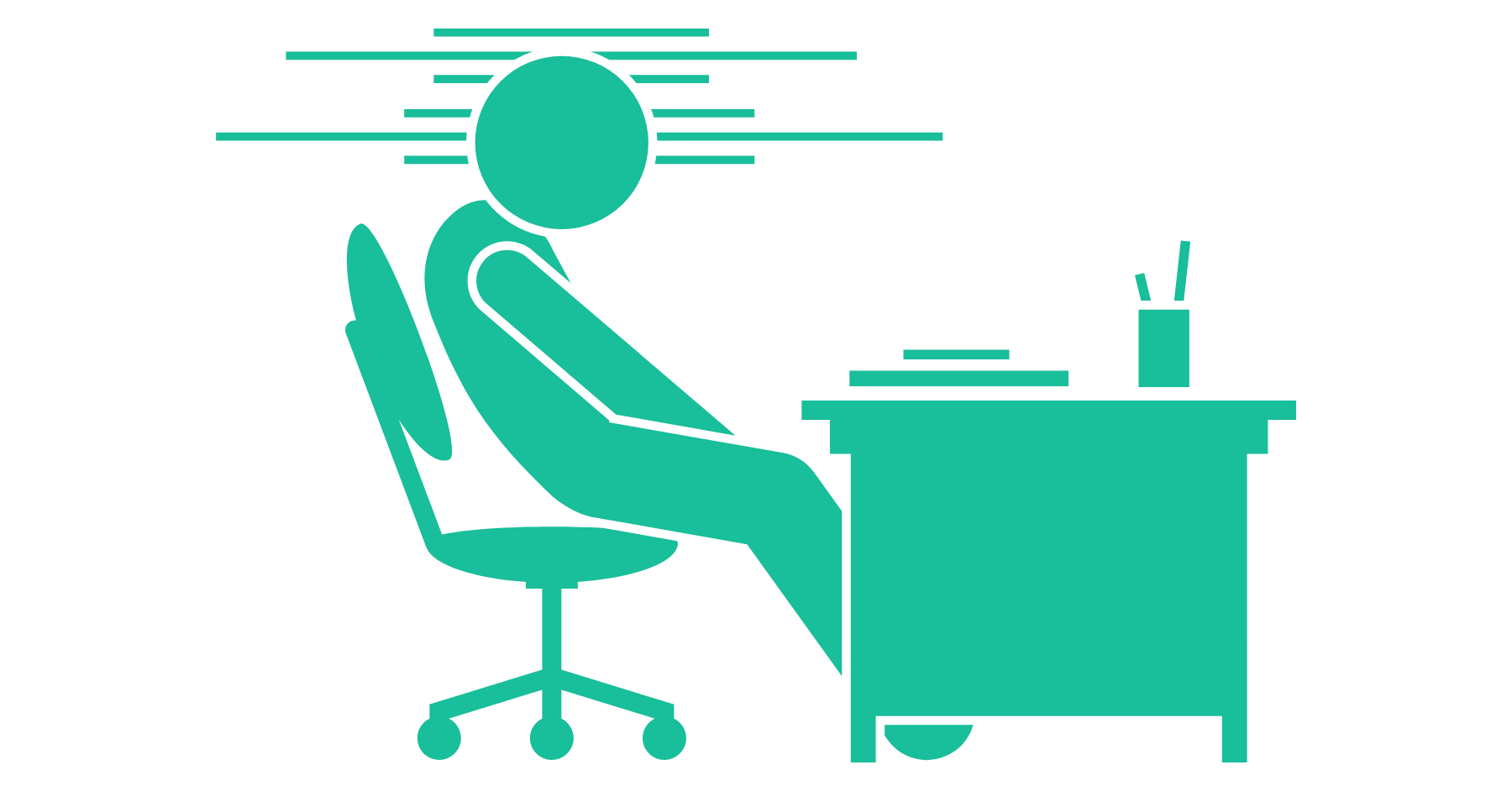
There are several reasons why you are unmotivated to work on your tasks at work. Misalignment between your values and profession could be a significant cause if the lack of motivation happens constantly.
Other causes could be contextual or situational. For example, motivation would be hard to come by if you have worked nonstop for a while. Similarly, lack of motivation could also be chronic. Having to work on a Sunday, for instance, would likely make it hard if you are used to resting on weekends.
The level of difficulty could be another important cause. If the task is far beyond your desirable difficulty, it would also make it hard to find the motivation to work on the task at hand.
You could be too distracted.
A recent study found that most people take 23 minutes and 15 seconds to recover from an interruption.[5]Mark, Gloria & Gudith, Daniela & Klocke, Ulrich. (2008). The cost of interrupted work: More speed and stress. Conference on Human Factors in Computing Systems - Proceedings. 107-110. … Continue reading That’s a lot of time wasted, and it can add up as you go about the day. Imagine if you get distracted four times a day: a chat message notification from your friend, then an email notification, a ping from your social media account, and a colleague coming over for a chat. That would be 93 minutes!
Even worse is our wandering mind. The study, A Wandering Mind Is an Unhappy Mind, suggests that our mind is already too distracted[6]Killingsworth, M. A., & Gilbert, D. T. (2010). A wandering mind is an unhappy mind. Science, 330(6006), 932-932. https://science.sciencemag.org/content/330/6006/932.abstract, so we should eliminate external distractions, especially digital distractions, as much as we possibly could if we want to maintain focus.
Health issues are another common reason that makes it hard to concentrate.
Inability to focus could be associated with a chronic condition such as alcohol use disorder, ADHD, chronic fatigue syndrome, dementia, insomnia, and restless leg syndrome.[7]Nall, R. M. (2019, September 7). What Makes You Unable to Concentrate? Healthline. https://www.healthline.com/health/unable-to-concentrate Congestive heart failure, head trauma, kidney disease, liver disease, the metabolic disorder could also affect your ability to focus.[8]Staff, H. E. (2021, January 10). Concentration Difficulty. Healthgrades. https://www.healthgrades.com/right-care/symptoms-and-conditions/concentration-difficulty
If you believe that this could cause your inability to get focused at work, you should consult an expert.
Being unable to focus could also be due to lifestyle changes.
These lifestyle changes could all affect your ability to get focused at work: terrible life circumstances, sleep deprivation, hunger, anxiety, stress, or a change in the working environment, e.g., working from home during a Covid-19 lockdown.
If it is temporary, you could try to optimize your environment where possible, but there is nothing much you can do about it. But if the lifestyle changes are there to stay permanently or for a long while, you would have to adapt accordingly. Try to maintain good lifestyles and use the changes as the opportunity to develop other good work habits.
Further reading:
- 4 Common Reasons You Can’t Focus on Work (Trello Blog)
- Why Am I Unable to Concentrate (Healthline)
- Concentration Difficulty (healthgrades)
With these causes in mind, let’s move on to the next part.
How do I make myself focus at work?

In this part of the guide, you will learn 20 ways you can make yourself focus at work. Some of the tips are practical, but most of them will provide you with guiding principles to study further and make them work for you.
Unless your inability to focus does not result from a health condition, you should get lots of value from the following tips.
Let’s get started.
Embrace boredom
The greatest threat to success is not failure but boredom. So, not only does your ability to embrace boredom help you get focused at work, but it also determines how far you can go on the quest for a career. As elite weightlifting coach once told James Clear, the author of the bestselling book Atomic Habits:
“At some point, it comes down to who can handle the boredom of training every day, doing the same lifts over and over and over.”
High-quality work requires a significant amount of time and intense focus. It is usually effortful and challenging. As a result, boredom could creep in from all directions, therefore pulling you towards your favorite distractions, such as working on a more manageable task, surfing the internet for tips and tricks, and scrolling through social media feeds.
There are countless tips to get focused on a task. But, a surefire way to produce at an elite level is to learn to fall in love with boredom, which is inevitable as you sit down to commission your undivided concentration on the task.
Most of the following tips should help you in one way or another to embrace boredom, such as practicing meditation and mindfulness, dealing with distractions, and working intervals.
Optimize consumption of social media and instant messaging
Social media and instant messaging is probably the biggest distraction in today’s world of work.
Sixty percent of the workweek spent on social media and electronic communication[9]Newport, Cal. Deep Work: Rules for Focused Success in a Distracted World (p. 5-6). Grand Central Publishing. Kindle Edition. sounds crazy! Even if you’re a social media professional, you should not spend that much time on those platforms.
There are tools for social media admins to engage their audience without having to be on the platform. For example, Facebook has the Business Manager for both the Facebook audience and Instagram. Moreover, you can use tools like Buffer, Hootsuite, and Crowdfire to manage your social media account as a social media professional without having to get sucked into the news feeds. Those tools also come with helpful analytics tools that provide you with data you will need to measure your performance and improve it.
While managers’ priority is to stay on top of things, rainmakers should benefit more from exploring rock bottom.[10]Graham, P. (2009, July). Maker's Schedule, Manager's Schedule. http://www.paulgraham.com/makersschedule.html. In other words, if you want to be a rainmaker, you should spend more time producing and creating. The crucial first step to get focused at work should be to optimize your social media consumption and instant messaging.
Read more on how to configure your iPhone to work for you here and the steps you can take to optimize your social media use here.
Balance your energy levels
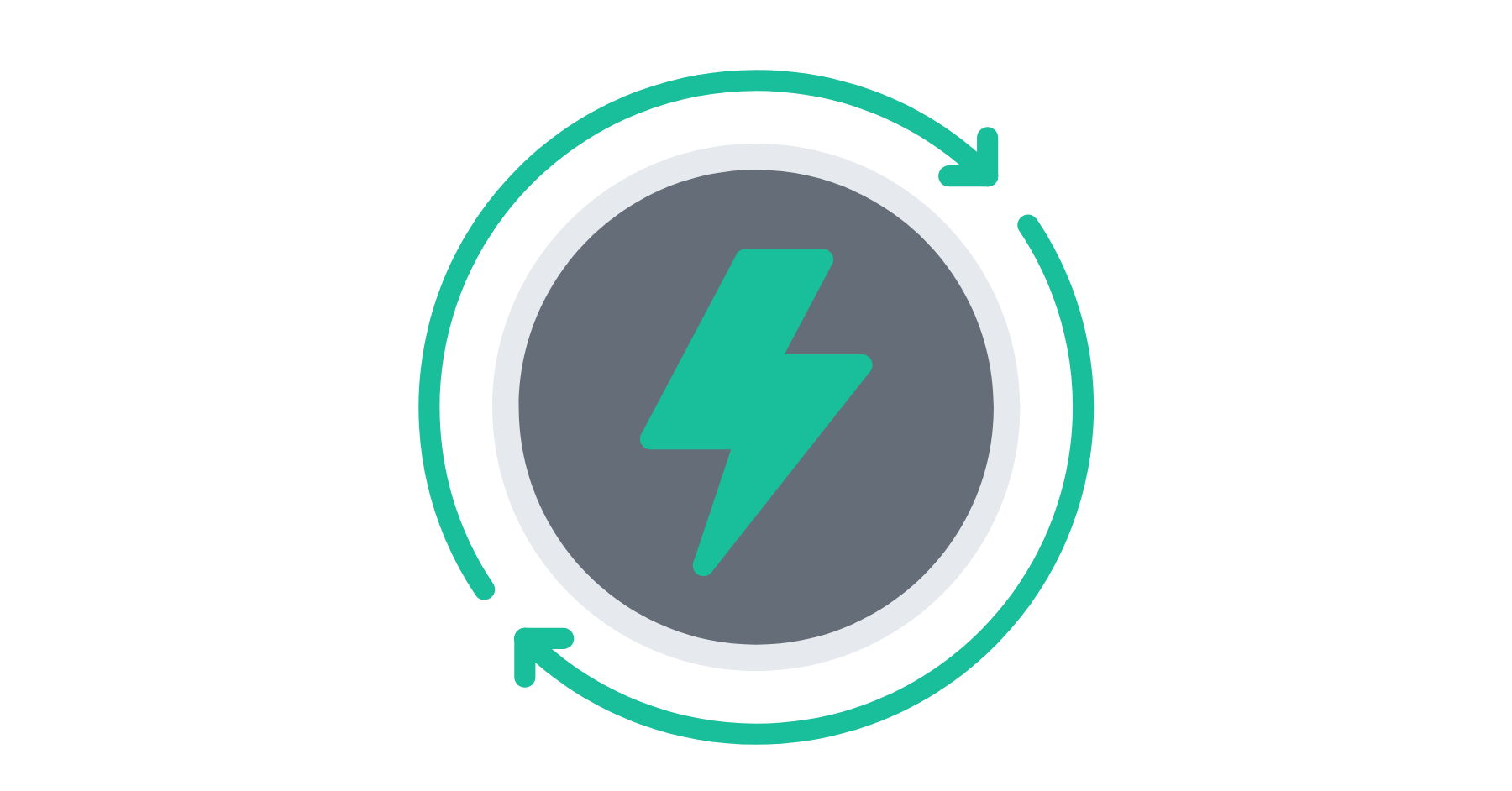
The four dimensions of energy (physical, emotional, mental, and spiritual) make up the holistic foundations for complete focus that you need to perform at your best. In other words, if you can’t concentrate at work, you should ask yourself:
- How is my physical energy now? Am I feeling tired? Sleepy?
- How am I feeling? Is the current state of emotions affecting my ability to focus at work?
- What is getting my attention most? Does it affect my ability to be engaged at work?
- How is my spiritual state? Am I feeling grateful for my challenges at work? Am I calm and mindful?
Furthermore, it is vital to learn to align your energy with appropriate tasks. For example, if your concentration is high, writing might be a great thing to carry out. In the afternoon slump? Calling your prospective clients to say hello could be a good idea.
In short, the first place to look to become fully engaged is your energy. Match your task with your energy level.
Deal with distractions
The number one enemy of focus is a distraction. There are two types of distraction: internal and external. Internal distractions could be the result of medical and psychological reasons or lifestyle changes. For example, scrolling through social media feeds can become a bad habit that is difficult to break and could be an internal distraction that you should deal with to focus on high performance.
Sources of external distractions include interruptions from your colleagues, your phone configurations, notifications from your apps, and incoming tasks as you go through your day.
Identify distractions and eliminate them as much as you possibly can. While it might not be possible to stop them entirely, you can block them or at least turn off notifications from most apps such as Facebook, Twitter, email, and if any, games.
Read more on how to overcome distraction here.
Practice the Pomodoro technique
Pomodoro is a great productivity and time management method, especially for people who find it difficult to get focused. It suggests that you work in intervals of 30 minutes. In each chunk of time, you work for 25 minutes and take a break for 3-5 minutes. Then you repeat working like that until completing your task.
In every four Pomodoro’s, you take an extended break of 15-30 minutes.
The basic process involves the following:
- Choose a task to do
- Decide how many sessions you want to work on it
- Set a timer to 25 minutes
- Work on the task until the timer goes off
- Check your task with a checkmark
- Take a break for 3-5 minutes
- Repeat the timer and continue the task
- Take a long break of 15-30 minutes after four Pomodoro’s
However, I recommend that you set a time that works for yourself and your circumstances. For example, if it is usually difficult for you to get focused, you could start with five or ten minutes per interval. Or does your focus get worse in the afternoon than in the morning? Adjust your Pomodoro intervals to fit that.
Also, the type of work should affect how long the interval should last. For instance, writing might need longer intervals.
All you need to implement this technique are a timer (any timer will do) and a piece of paper. There are also many apps you can choose from. For me, I use BeFocused Pro for my Pomodoro timer. It works on both my MacBook and iPhone.
Coffee in moderation
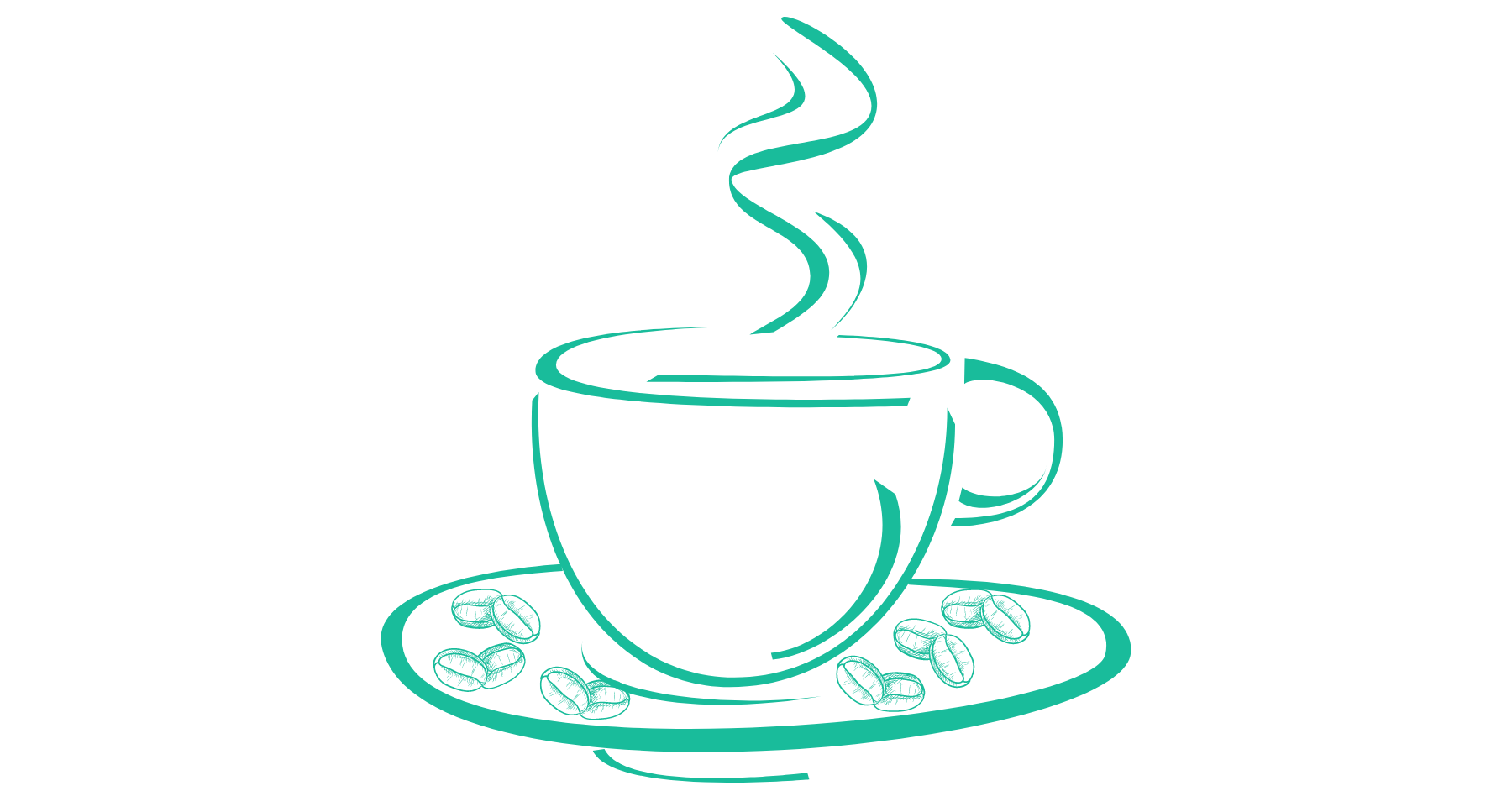
The number one benefit of coffee is that it improves energy levels and focus.[11]Gunnars, K. (2018, September 20). 13 Health Benefits of Coffee, Based on Science. Healthline. Other beneficial effects on productivity include:
- Improved mood and brain function,
- Physical performance,
- Protection from Alzheimer’s disease and dementia,
- Low risk of Parkinson’s, and
- Fighting depression.
It is a healthy drink (as long as you do not add sugar). Studies show that coffee drinkers have a lower risk of serious diseases. Coffee works if you want to overcome the afternoon slump, and you would need it if you did not get enough rest the night before.
But remember:
Small doses, and no sugar.
Eat energy food
The foods you eat play an essential role in memory and concentration.
New research shows that eating just one fatty meal can negatively affect your ability to concentrate.[12]Annelise A Madison, Martha A Belury, Rebecca Andridge, M Rosie Shrout, Megan E Renna, William B Malarkey, Michael T Bailey, Janice K Kiecolt-Glaser, Afternoon distraction: a high-saturated-fat meal … Continue reading Sugar intake, too, hinders your mental capacity. So, it is important to fuel your body with the right foods to help your ability to focus at work.
But what foods should you eat?
The best foods to boost your brain and memory include fish, blueberries, turmeric, broccoli, pumpkin seeds, nuts, dark chocolate, oranges, eggs, and green tea.[13]Jennings, K.-A. (2021, June 18). 11 Best Foods to Boost Your Brain and Memory. Healthline. https://www.healthline.com/nutrition/11-brain-foods
Stay hydrated
Water makes up 60 percent of our body and 73 percent of our brain. Mild dehydration causes thirst, tiredness, headache, dizziness, and bad mood. These all hinder your ability to concentrate fully — necessary to produce at an elite level.
The right way to stay hydrated throughout the day is to drink water bit by bit. So, it’s vital to keep a bucket of water within reach. Please don’t wait until you’re thirsty to drink because that is itself a cause of dehydration.
If you use the Pomodoro Technique, each interval could be an excellent cue for water intake.
Get enough sleep (and rest)

People underestimate the importance of sleep and rest, but Harvard Medical School has an entire division dedicated to sleep research called the Division of Sleep Medicine. Why?
Because research shows that sleep helps learning, memory and concentration. If you cannot sleep well or do not get enough sleep, you cannot focus your attention optimally and cannot perform efficiently. “Healthy sleep is essential for optimal learning and memory function.”
In fact, a good rest has several other benefits, such as boosting the immune system, strengthening your heart health, boosting mood, and many more!
Further reading: How to Rest and Be More Productive
Live a purposeful life
Your life purpose determines what you get focused on. If you have a burning desire to become a writer, you will find it easier to focus on reading and writing than socializing with other people. Similarly, if you work on a task or project that does not align with your purpose, the focus would be more challenging to improve.
And, if you do not have a clear purpose in life or are in the process of defining and refining it, getting focused on a task at hand would be hard to come by. If you feel constantly unmotivated, it might be a good idea to take a step back and rethink your purpose if you continuously have a hard time focusing at work.
Optimize a to-do list to work for you
It lets you empty your mind for the focus you need to complete your task at hand with the intensity of focus you need to produce at an elite level. But for a to-do list to work, you must optimize it and make it realistic every day. For example, if you have too many tasks to complete today, you might have to plan an appropriate number of jobs and reschedule the rest. But if you prioritize completing a task, your to-do list on that day could contain just a single item.
To optimize your to-do list to work for you, you must collect everything that gets your attention and process them daily. Delete those you do not need to act on and delegate the tasks that others can do better than you. Then, for those tasks you need to complete, set a deadline and time to work on them. Check off those you have completed and add a finishing touch: celebrate.
Practice mindfulness and meditation

Some research suggests that mindfulness affects prosocial behaviors of people with an independent “self-construal.” [14]Poulin, M., Ministero, L., Gabriel, S., Morrison, C., & Naidu, E. (2021). Minding your own business? Mindfulness decreases prosocial behavior for those with independent … Continue reading However, from reading the findings of several other studies of mindfulness and meditation and my personal experience meditating since 2008, the benefits are enormous, including reduced psychological distress, better emotional health, improved cognitive abilities, and even physical health.[15]Manson, M. Meditation: Why You Should Do It. Mark Manson. https://markmanson.net/benefits-of-meditation#benefits (last accessed July 1, 2021)
Specifically, mindfulness and meditation have two important roles in helping you get focused at work.
First, it is an essential skill to embrace the boredom and uncertainty of deep work and enjoy the long-term benefits. Sitting still with the entirety of your being and thoughts that pass by uncontrollably like clouds in the sky could be the best form of training, and this could be your first step to tapping into your potential.
Second, meditation and mindfulness can also be a training ground for your mental focus. There are two types of distractions: external and internal. While you can remove cues that trigger your distracting behaviors, internal distractions are a different kind of beast. Only with a balanced state of energy and calm can you tame it; therefore, mindfulness and meditation is your go-to practice.
Monotask
Multitasking is a myth.[16]Rosen, C. (2008). The Myth of Multitasking. The New Atlantis, (20), 105-110. Retrieved July 1, 2021, from http://www.jstor.org/stable/43152412 But, single-tasking is more than just working on a single task at a time; it is about the mental process of concentration. You can work on a single charge but are unable to get focused on the task at hand. Similarly, you can try to multitask but find that one of the tasks monopolizes your attention.
That said, working on one task at a time in intervals is a great place to start mono-tasking. The Pomodoro Technique makes the practice more doable.
Create appropriate conditions for focus
This advice might sound like an overlap with what we have covered earlier, such as mindfulness and meditation, getting sufficient sleep, and using a task management list. But, it is worth adding this to cover other conditions favorable for deep work necessary to produce at an elite level.
Such conditions include:
- Developing good work habits like working on priorities, having a sense of ownership of your work, managing time effectively, and embracing deliberate practice for improving performance.
- Proper office ergonomics. Although people traditionally use ergonomics to minimize occupational health and safety issues, the ergonomics principles can also be used to improve productivity as well.[17]Resnick, M. L., & Zanotti, A. (1997). Using ergonomics to target productivity improvements. Computers & Industrial Engineering, 33(1-2), 185-188. … Continue reading In other words, proper office ergonomics, including correct chair height, adequate equipment spacing, and good desk posture, can help you and your joints stay comfortable at work, therefore improving your productivity.
- Work arrangements. This involves negotiation with your boss about the amount of work to handle, the depth of it, and key performance indicators (KPIs) for objective evaluation of your achievements. Other arrangements could be about whether to work in an open space or private office. It could be the decision about whether to work in the office or remotely.
It is your responsibility to create the right conditions that make it easy to get focused at work.
Get organized using the GTD method.
Getting Things Done (GTD) is a holistic productivity system that lets you organize your work and life. The GTD workflow consists of the following five steps:
- Capture everything in your inbox
- Clarify items in your inbox, so it makes sense to you.
- Organize your items. If it’s actionable, task it. Something that is not actionable but could be needed later on should go into the reference tray. Delete the rest.
- Review your lists regularly. Daily review keeps you in control of your day and lets you plan the next day. A weekly review enables you to stay on track with your goals.
- Engage. Work on tasks based on four criteria: context, time available, energy available, and priority.
Follow the GTD workflow:
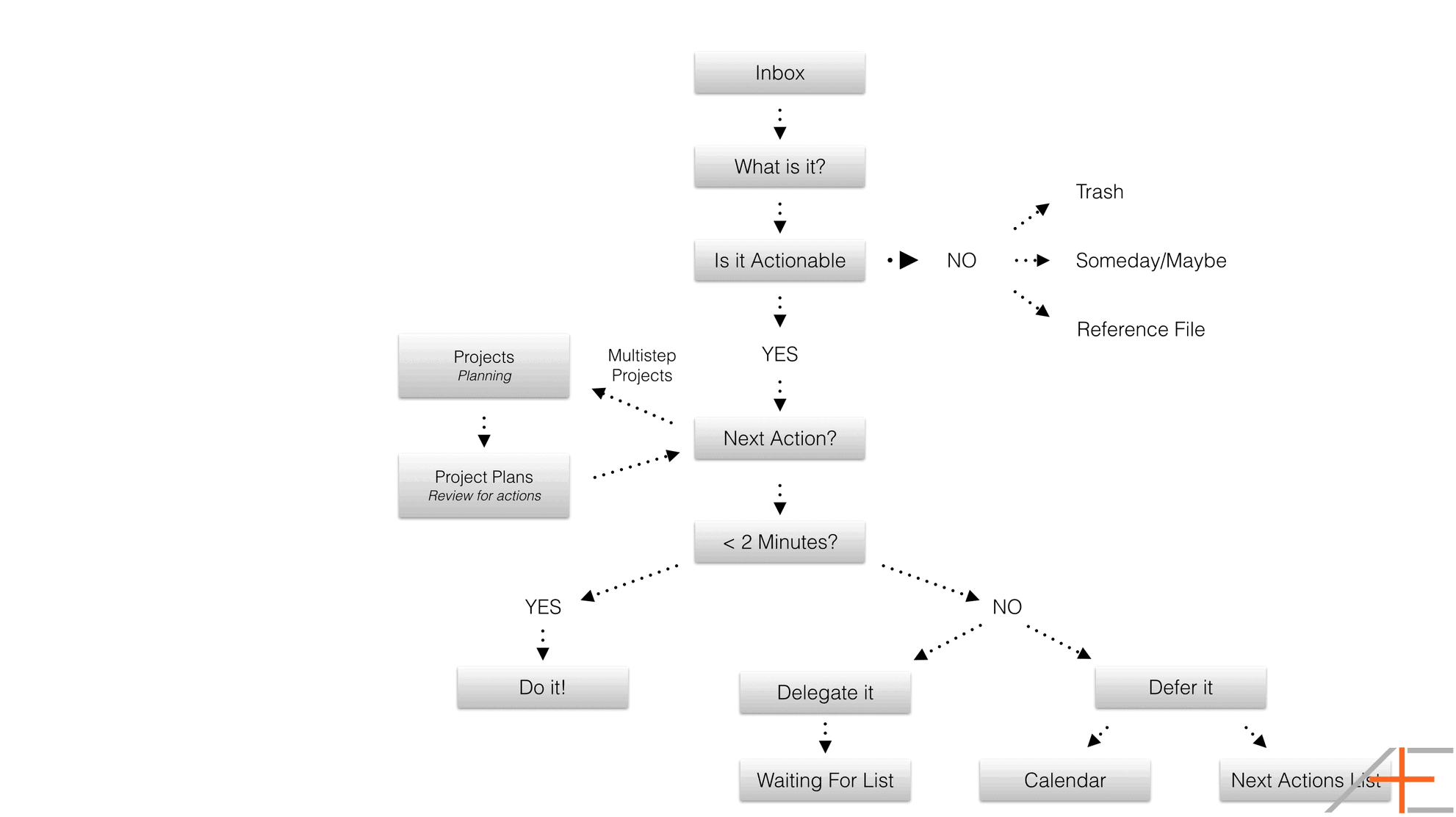
Further reading:
Try focus music
I will begin this tip with some cautions.
First, a recent study found that certain bedtime music can disrupt your sleep and that instrumental music is even worse than music with lyrics. Also, the effect of music on focus is complicated. On the one hand, it could distract you, negatively affect working memories and reading comprehension. On the other hand, the benefits of focus music are immense. It can motivate you[18]Gold, B. P., Mas-Herrero, E., Zeighami, Y., Benovoy, M., Dagher, A., & Zatorre, R. J. (2019). Musical reward prediction errors engage the nucleus accumbens and motivate learning. Proceedings of … Continue reading
and improve your mood[19]Lehmann, J. A. M., & Seufert, T. (2017). The influence of background music on learning in the light of different theoretical perspectives and the role of working memory capacity. Frontiers in … Continue reading. More importantly, focus music can optimize your concentration at work[20]Sridharan, D., Levitin, D. J., Chafe, C. H., Berger, J., & Menon, V. (2007). Neural dynamics of event segmentation in music: converging evidence for dissociable ventral and dorsal networks. … Continue reading.
With these findings in mind, here is my personal experience and why I recommend focus music.
From years of listening to music when sleeping and working deeply, my experience is this. Soothing music effectively relaxes my mind, although sometimes falling asleep still takes time, especially when I am obsessed with what I’ve been doing or thinking. Because of the benefits, I will continue to my bedtime music without lyrics while keeping my eye on further studies on the topic.
Moreover, the effect of focus music on concentration is undeniable for me. It is my ritual for deep work. I am writing this article (as well as others on this blog) with my headset on, listening to work music on the Calm app. It gives me focused concentration instantly the moment the music plays.
Try this one I found on YouTube and see if it works for yourself:
Train your focus by doing what you want to do or learn
Doing or learning what you are passionate about makes it more effortless to concentrate on; therefore, it should make great practice for you to improve your work focus. If you love reading, make time for that. Want to plant trees? Making time for gardening and planting should be fun, and focus should come quickly.
If you find it challenging to find focus, start small. The philosophy should be like this:
Think big. Start small. Most importantly, start. And optimize your performance practice by practice.
Do mental workout
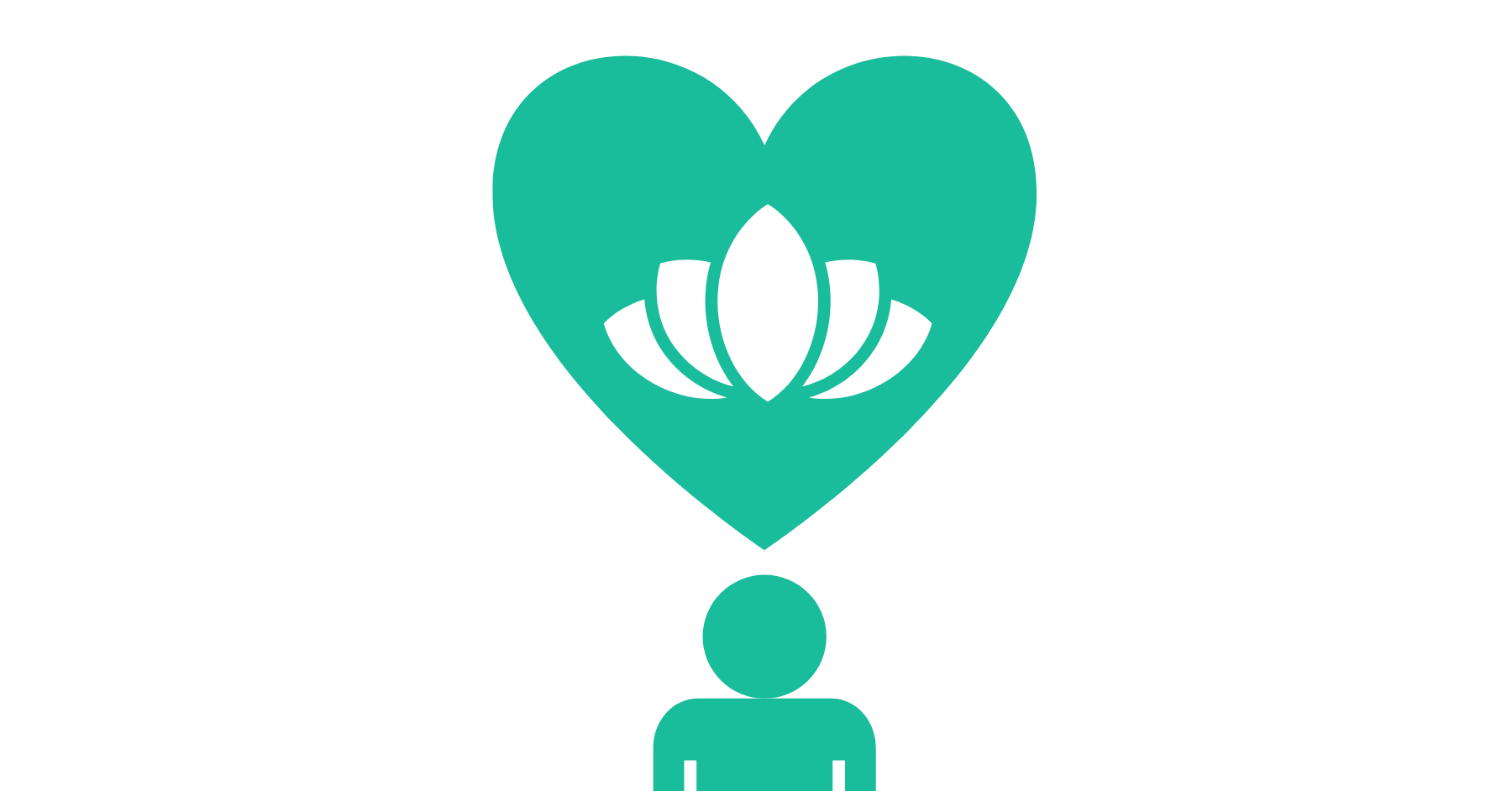
While further studies are necessary to prove or disprove that “braining training” could improve your cognitive ability, this kind of mental workout could help you focus your attention better.[21]Brown, P. C., Iii, H. R. L., & McDaniel, M. A. (2014). Make It Stick: The Science of Successful Learning (1st ed.). pp. 176-178. Kindle. Belknap Press: An Imprint of Harvard University … Continue reading It is necessary for those who want to keep their brain sharp as they get older.
Drawing, doodling, solving Rubik’s cubes, and meditation are just a few examples. Other brain exercises you can do include the following:
- solving puzzles,
- learning new vocabulary,
- dancing, sensing,
- learning a new skill,
- teaching a skill,
- listening to music,
- learning a new language,
- going on a trek,
- and, of course, meditation.
Recommended reading: 13 Brain Exercises to Help Keep You Mentally Sharp (healthline)
My recommended app is Elevate App for braining training. It has a wide range of brain training exercises such as sudoku, crossword puzzles, jigsaw puzzles, word search or scrambles, and memory games.
Exercise regularly
Research shows that physical exercises have a positive effect on concentration in young people.[22]Hillman, C. H., Pontifex, M. B., Raine, L. B., Castelli, D. M., Hall, E. E., & Kramer, A. F. (2009). The effect of acute treadmill walking on cognitive control and academic achievement in … Continue reading[23]Cooper, S. B., Bandelow, S., Nute, M. L., Dring, K. J., Stannard, R. L., Morris, J. G., & Nevill, M. E. (2016). Sprint-based exercise and cognitive function in adolescents. Preventive medicine … Continue reading[24]Cooper, S. B., Dring, K. J., Morris, J. G., Sunderland, C., Bandelow, S., & Nevill, M. E. (2018). High intensity intermittent games-based activity and adolescents’ cognition: moderating effect … Continue reading This effect comes after various forms of physical activity, including walking, running, and team games. Another revealing discovery is that young people with higher levels of fitness demonstrate superior concentration when compared with less fit children,[25]Williams, R.A., Cooper, S.B., Dring, K.J. et al. Effect of football activity and physical fitness on information processing, inhibitory control and working memory in adolescents. BMC Public Health … Continue reading according to The Conversation.
Older adults, too, can keep their memory sharp and able to focus with physical exercises.[26]Chu, C.-H., Chen, A.-G., Hung, T.-M., Wang, C.-C., & Chang, Y.-K. (2015). Exercise and fitness modulate cognitive function in older adults. Psychology and Aging, 30(4), 842–848. … Continue reading
The good news is that you do not have to spend hours and hours on a treadmill to enjoy the benefits. 20-30 minutes of walking or aerobic exercises should be enough for busy professionals and adults.[27]Chang, Y.-K., Labban, J. D., Gapin, J. I., & Etnier, J. L. (2012). The effects of acute exercise on cognitive performance: a meta-analysis. Brain research, 1453, 87-101. … Continue reading
Spend time in nature
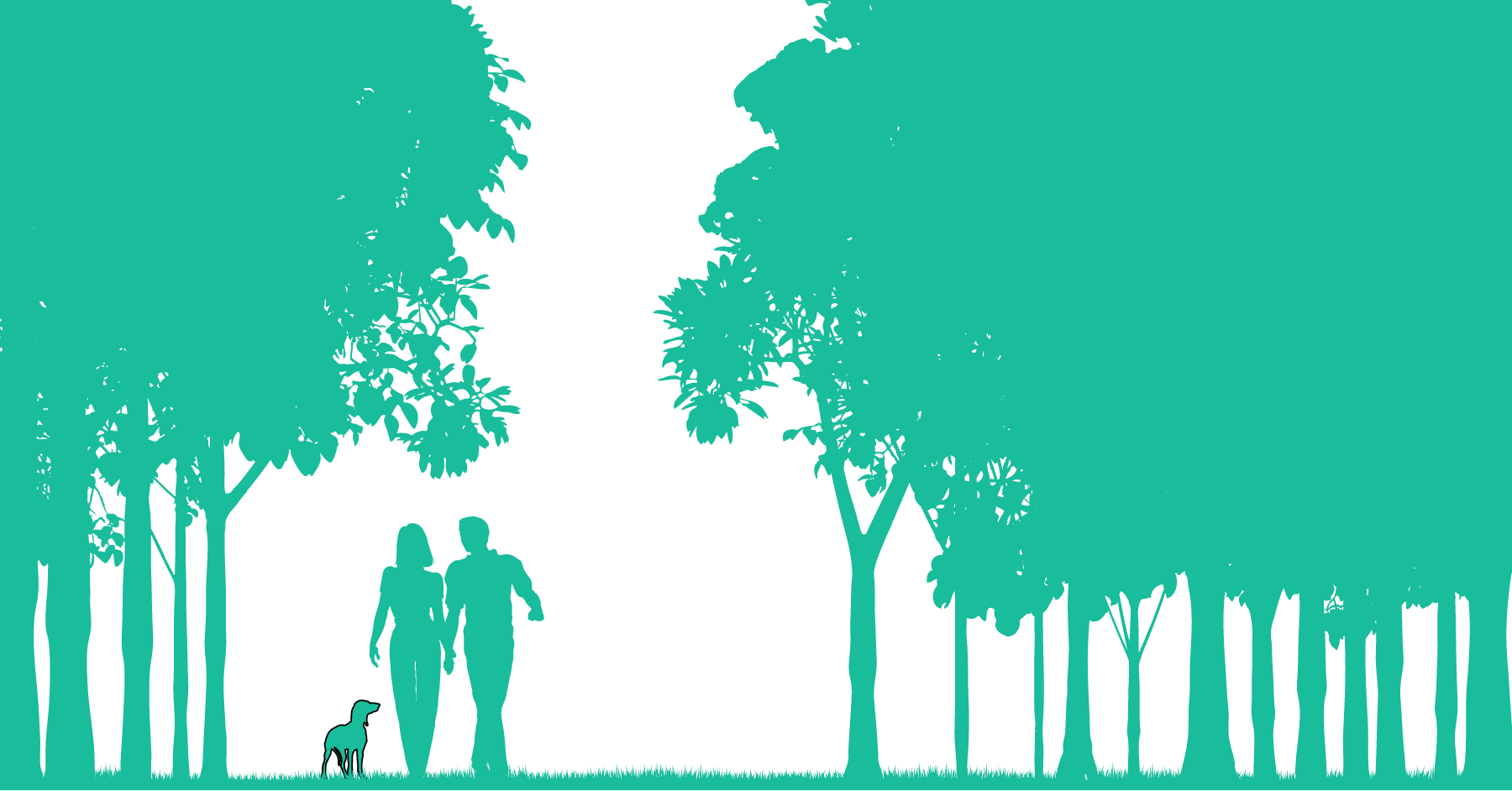
People can restore their focus better when they take a walk in nature than just a passive rest. In a 1991 study, researchers made participants exhaust their ability to get focused at work and then asked some to take a walk in nature through the city and the others just to relax. When they returned, the nature group scored the best on a proofreading task.[28]Hartig, T., Mang, M., & Evans, G. W. (1991). Restorative Effects of Natural Environment Experiences. Environment and Behavior, 23(1), 3–26. https://doi.org/10.1177/0013916591231001
Even nature views on screen could have a positive effect on attention.[29]Tennessen, C. M., & Cimprich, B. (1995). Views to nature: Effects on attention. Journal of environmental psychology, 15(1), 77-85. … Continue reading
As introduced earlier in this guide, if you use the Pomodoro Technique earlier, the long break after four work intervals could make a great time to go on a walk.
Further reading: 11 scientific reasons you should be spending more time outside (Business Insider)
How do you work when you can’t focus?
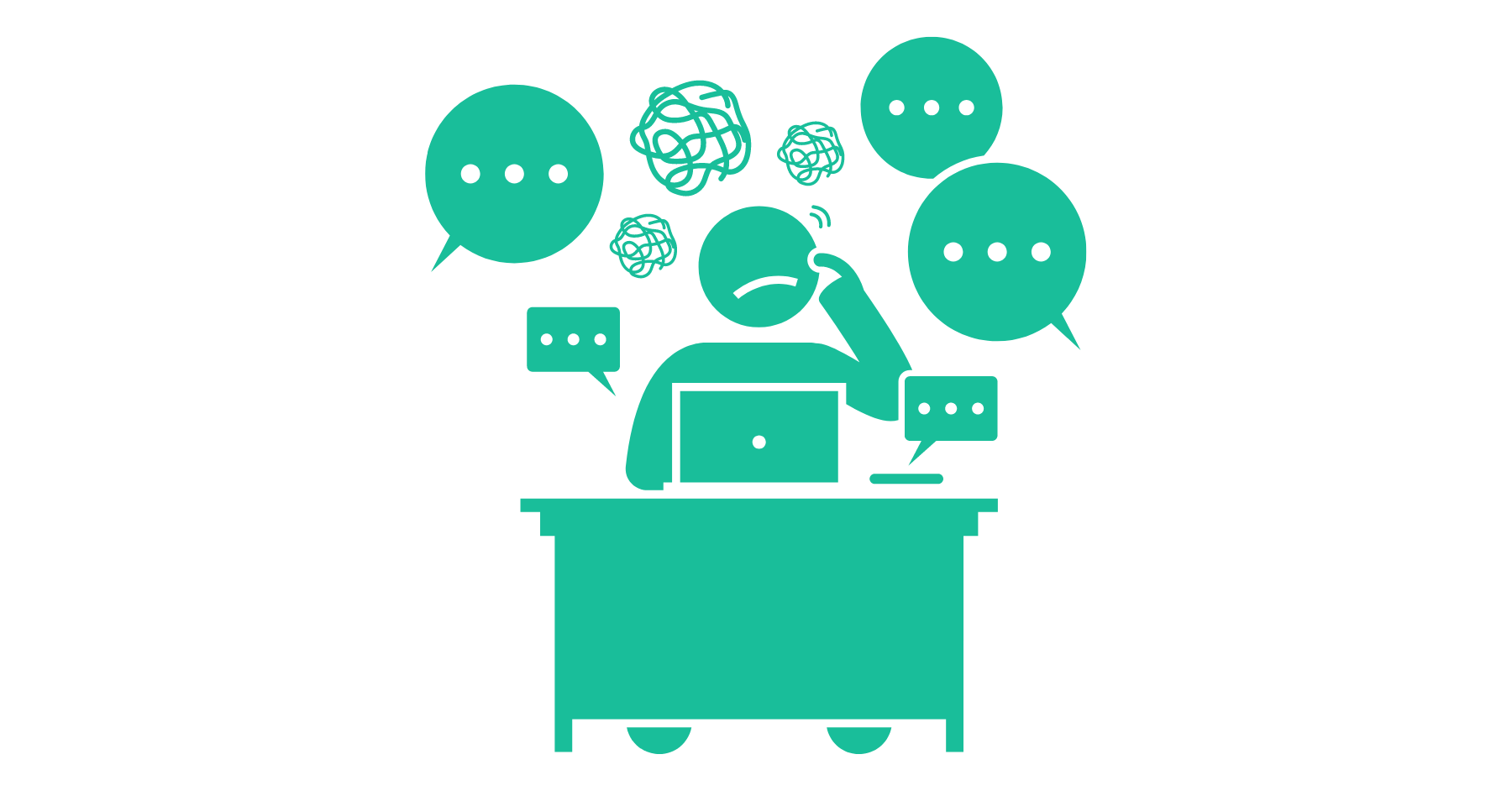
To answer simply:
You cannot; you must find the focus necessary to carry out the work.
Most likely, people who ask how to work when they can’t focus do so when they need focused attention to perform their work. Cal Newport proves in his book Deep Work that you would need intense focus and work deeply to produce at an elite level.
With that in mind, try the following practical steps.
Take a break and rethink
As you have learned from the previous section, there are several reasons why you can’t focus:
- Your energy is out of balance.
- You’re doing more than you can handle.
- Working for too long could make it hard to concentrate.
- Lack of motivation affects the ability to get focused.
- You could be just too distracted.
- Health issues are another common reason that makes it hard to focus.
- Being unable to concentrate could also be due to lifestyle changes.
Revisit the previous section to learn more about the reasons.
Except for the last two, you can overcome the other causes by taking a break and rethink. After all, our willpower is finite, so in their best-selling book, The Power of Full Engagement, Jim Loehr and Tony Schwartz recommend taking a break every 90-120 minutes.
Taking a break and rethink could be an essential first step to find the focus necessary to carry out your work. There are several ways to rest. Here are a few examples you can try:
- taking a walk in nature,
- doing something that gives you energy and unplugs from what you are working on,
- meditating for 10 minutes
Click here to learn more about how to rest properly and get re-energized.
Turn towards yourself
It may sound counterintuitive, but ignoring what gets your attention could, more often than not, give it the power to control you and make the situation worse. So, after a break, the next step to finding a focus is to turn towards yourself.
Mindfulness and meditation are excellent practices for this. After some time of sitting still and being fully present, your bodily reactions will improve, and your mind will be calm. If you manage to be present enough during meditation, the focus should come effortlessly.
Evaluate your situation
It is possible that after the first two steps, you can quickly obtain the focus you need. But, if it is not the case, you can take this extra step to evaluate your situation.
It does not have to be a complicated process. First, ask yourself, Why is it vital for me to perform the work? And then, spend three minutes writing all the reasons you can think of and feel into them. Next, write the rewards for doing it. You might come up with the same items here, but repetition does no harm. And finally, note down all the consequences of not doing the work. When your reputation is at stake, it could increase your chance of finding the focus you need to perform your task at hand.[30]Ma, Fengling, Dan Zeng, Fen Xu, Brian J. Compton, and Gail D. Heyman. 2020. “Delay of Gratification as Reputation Management.” Psychological Science 31 (9): 1174–82. … Continue reading
Start small
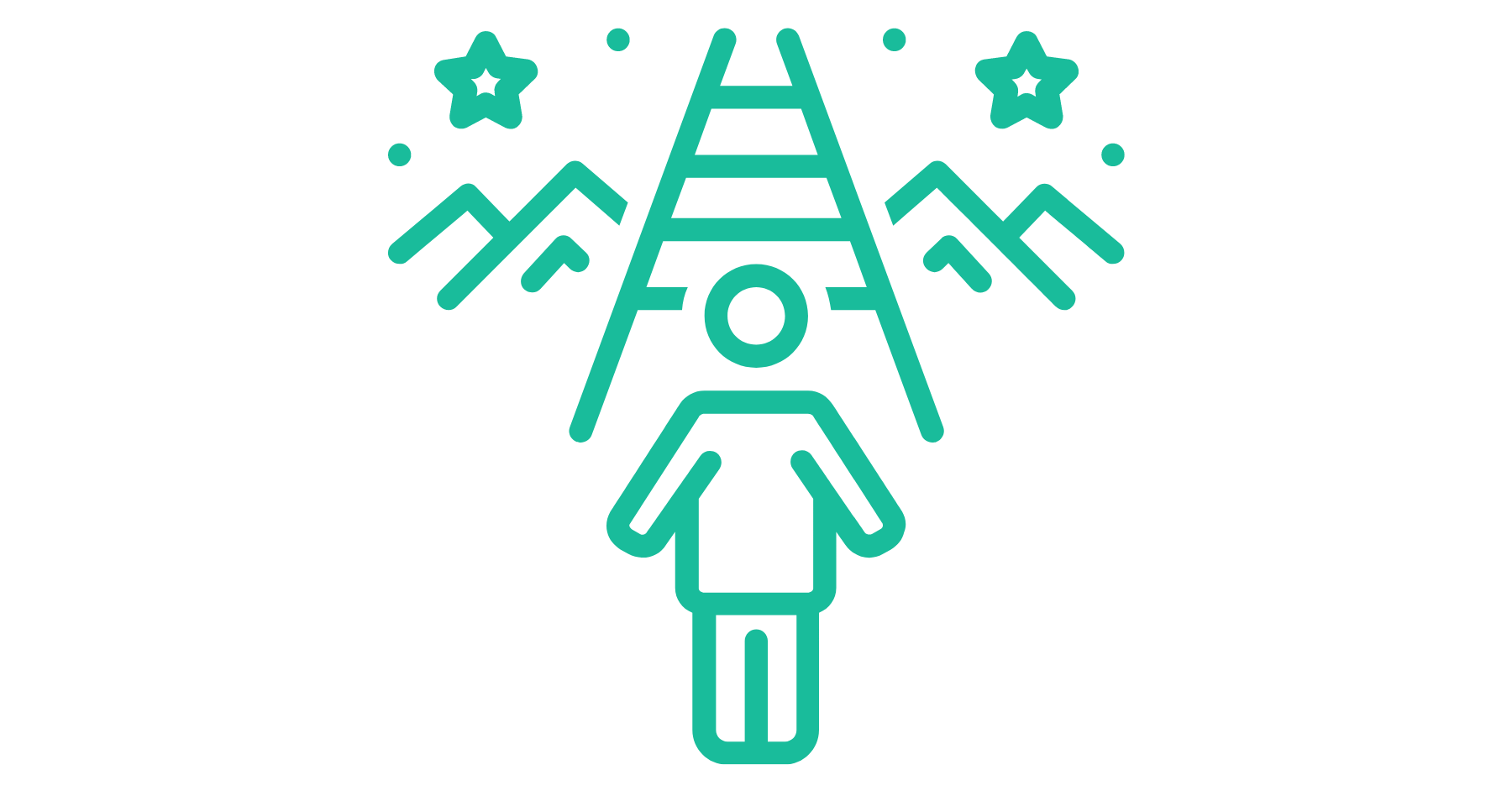
“A journey of a thousand miles begins with a single step.” —Lao Tzu
Now, make yourself focus for only a minute. If it still does not work, go for 30 seconds. Even 10 seconds of focus should be a significant starting step. Why?
Think big. Start small. Most importantly, start. And optimize your performance practice by practice.
Reward yourself for the small wins
Rewards play an essential role in habit building and cultivate motivation to get started on a mundane activity. So, after completing your first work interval with focused attention, however short it is, it is essential to celebrate your small win.
A simple technique for rewarding yourself I learned is from the bestselling book Atomic Habits. It is called habit stacking. Simply put, the method suggests that you stack what you want to do with what you have to do. The formula of habit stacking is this:
After (current habit), I will (new habit).
For example, I will take a sip of my favorite coffee after I write for 30 minutes.
There are other ways to celebrate your small wins and get motivated to keep focusing on your task. A deep breath of gratitude is one of them. Others could be taking a walk in nature for 20 minutes or making a phone call to your loved one.
What is important to remember is that you should avoid using or developing a bad habit as a reward for getting focused.
Repeat the action-reward cycle
After feeling into the reward you give yourself for staying focused, repeat the action-reward cycle. After the first round, the focus should come more easily. Make an effort to go longer after each interval.
Or, just take time off if all don’t work.
Willpower is finite. According to The Power of Full Engagement, we should take a break every 90-120 minutes. Similarly, a study found that if you have already worked intensely for 4-5 hours, the chances are that you have already depleted your energy for focused concentration.[31]ricsson, K. A., Krampe, R. T., & Tesch-Römer, C. (1993). The role of deliberate practice in the acquisition of expert performance. Psychological Review, 100(3), 363. Another study further concluded that age and skill level affect the maximal daily concentration time. “Beginners seemed to be limited to around 15-20 minutes of full concentration, whereas individuals with many years of daily training only gradually reached the 5-hour limit.”[32]Ericsson, K. A. (2020). Towards a science of the acquisition of expert performance in sports: Clarifying the differences between deliberate practice and other types of practice. Journal of sports … Continue reading
So, there are times when enough is enough, and you just have to learn to be self-aware and adapt your energy accordingly. If you try all the steps and still can’t get focused on the work you are supposed to perform, it may be a signal that you should just call it a day.
How do I shift my focus?
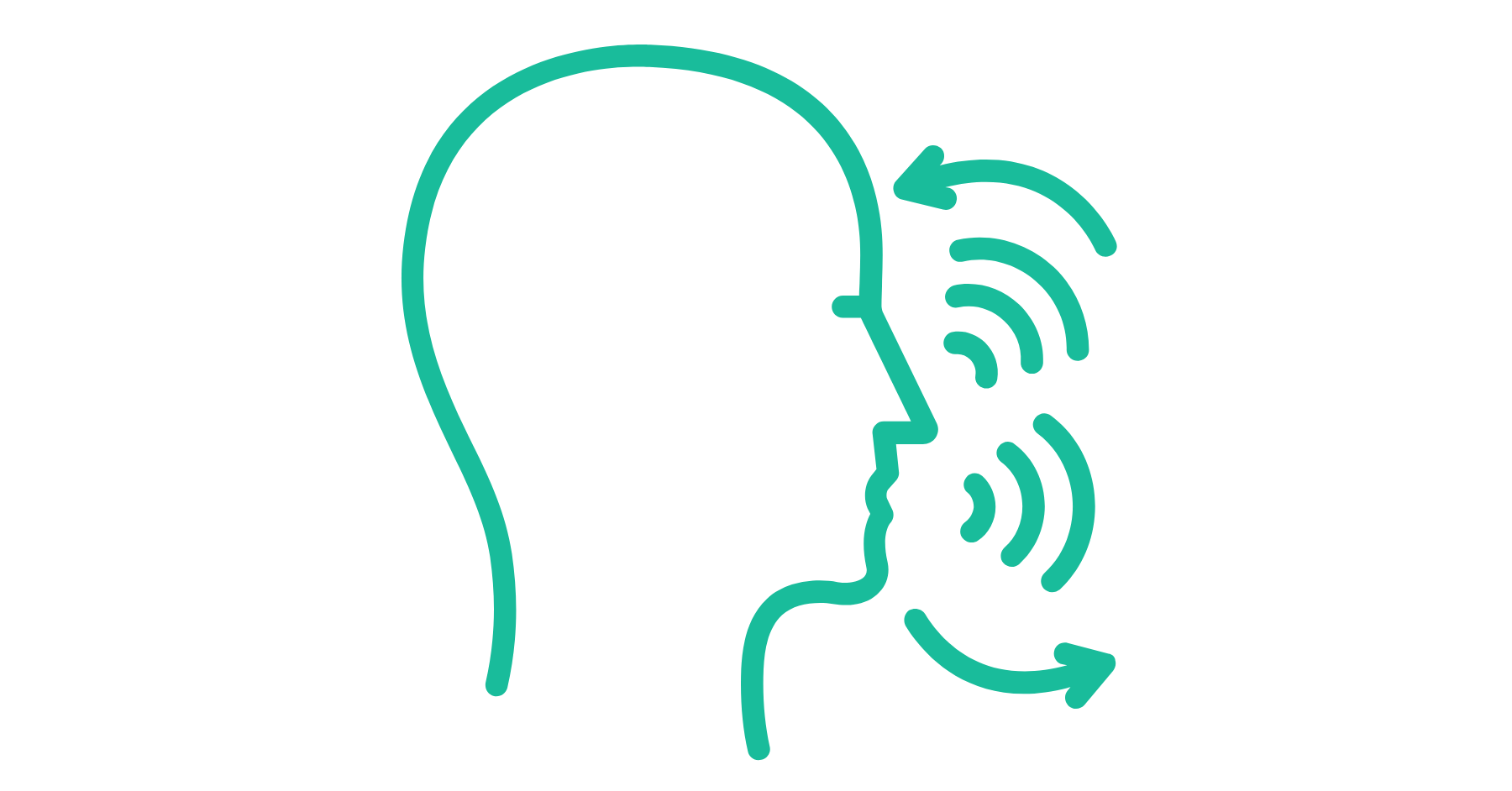
When working intensely, I often have difficulty trying to relax my attention and shift focus away from the task. I have personally experienced many sleepless nights as a result of overthinking and over-working. If you have had similar troubles, I hope that the following tips will be practical enough to help you shift your attention effectively from one task to another or from the state of focus to a state of rest.
The tips should also work if you want to change your focus from a lingering problem.
Turn towards your attention.
As mentioned earlier, turning towards your attention while trying to shift your focus may sound counterintuitive. But, just like the possible consequences of turning away from a problem, ignoring what gets your attention only gives it the power to control us. It could also make the situation worse.
So, the first step to moving away from your focus is to turn towards it. Shed light on it and allow yourself to feel the pain and fear of that unwanted focus. What is it like? What does your body do to react to it? What story are you telling yourself about it?
Mindfulness and meditation are excellent practices for this. After some time of sitting still and being fully present, your body reactions will improve, and your mind will be calm. If you manage to be present enough during the meditation, shifting focus will be effortless.
Switch to an activity that involves different senses or thought patterns
For example, if you have been writing, you can switch to gardening, solving Rubik’s cube, or even watching a movie. The activities could be mindless or effortful. What is important is that the action shifted should involve different senses.
Here is a list of activities you can try when you want to shift from deep knowledge work:
Create a motivational video
Videos often deliver messages better than any other mode. Therefore, if you create a video with your motivational ideas and a private TED talk, you can play it anytime you feel disheartened or demoralized.
Use an effective video editor to save time when you add audio to video and create a sumptuous motivational track! If you are a beginner, try FlexClip. It's a free and easy-to-use online video editor that has a wide variety of templates and features to help you create professional-looking motivational videos.
Take a walk
Go outside if you can. Walking in nature would be ideal. But if you can’t, walking indoor around your bedroom would help too. You can also try a mindful walk by following the instruction in the video below.
Do breathing exercise
If walking isn’t a viable option, you can try breathing meditation. Simply pay attention to your breathing.
You can also try the 4-7-8 breathing technique.
- First, let your lips part. Make a whooshing sound, exhaling completely through your mouth.
- Next, close your lips, inhaling silently through your nose as you count to four in your head.
- Then, for seven seconds, hold your breath. Make another whooshing exhale from your mouth for eight seconds.
When you inhale again, you initiate a new cycle of breath. Practice this pattern for four full breaths.
Exercise
Deep work in a knowledge domain requires a great deal of thinking, so it helps to shift to physical activities. Any type of exercise should do the trick. Aerobics, yoga, HIIT… choose what you enjoy.
Talking to someone
Attention to a conversation is generally automatic, so next time you want to switch your attention, try chatting with a colleague or call a friend or family member. Get swept away by the conversations.
Read a book
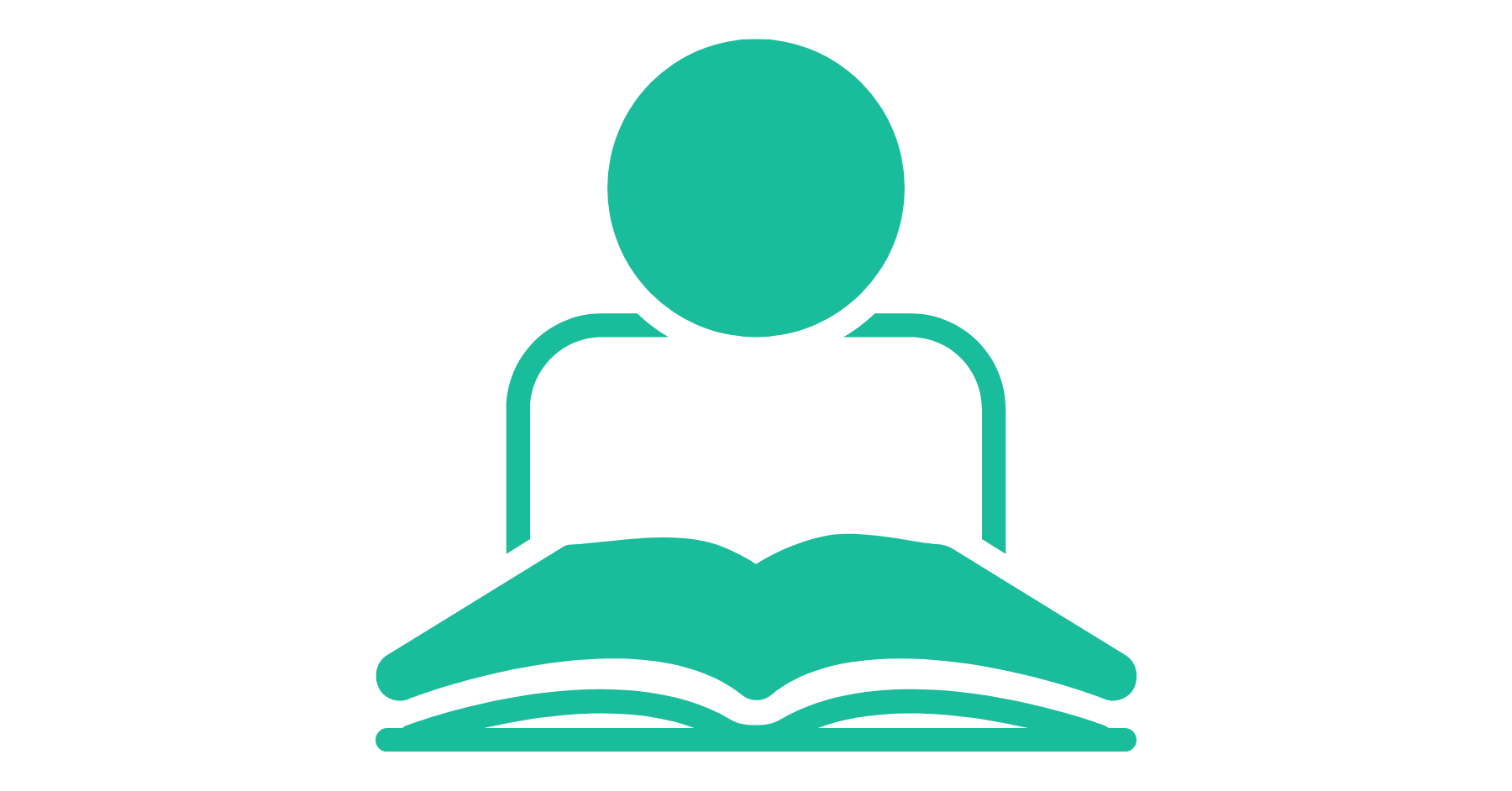
Reading news or social media feeds can help too, but I recommend reading a book. Reading a book requires a certain level of concentration that could be sufficient to shift your attention from work. It does not matter if you are a bookworm or do not read books that much.
Recommended reading:
How to Change Focus (Sources of Insight)
Stressed Out About a Problem? Try the Focus-Shift Trick (WebMD)
Key Takeaways
Congratulations on reading this far.
Here are key takeaways from this definitive guide to getting focused at work.
- Identify the reasons why you can’t get focused. Consult this list: a) Your energy is out of balance; b) You’re doing more than you can handle; c) Working for too long could make it hard to concentrate; d) Lack of motivation affects the ability to get focused; e) You could be just too distracted; f) Health issues are another common reason that makes it hard to concentrate, and g) Being unable to focus could also be due to lifestyle changes.
- If you constantly find it hard to focus, consult a health expert. Suppose you believe that you can handle it yourself. In that case, you might try these activities and make them your daily habits: a) mindfulness and meditation practice, b) embracing boredom, c) quitting your favorite distractions such as social media, and d) continually optimizing your energy.
- These could be essential daily routines for focused attention: a) adopting the GTD method for personal productivity, b) taking advantage of a to-do list, c) working in intervals using the Pomodoro Technique, and d) taking regular breaks.
- When necessary to shift your focus, follow these steps: a) turning towards yourself, b) changing gears by doing something else, mindless or effortful.
That’s it. I hope you get lots of value out of this guide to getting focused at work.
Now over to you:
What do you find most helpful? Why?
Frequently asked questions about how to focus better for work
There can be various reasons why you may find it challenging to stay focused at work. Some common factors include distractions in the environment, lack of motivation or interest in the tasks, excessive workload, stress, or even physical discomfort. It is essential to identify and address these factors to improve your focus and productivity. Here are a few tips: create a designated workspace, minimize distractions, break tasks into smaller manageable chunks, prioritize tasks, practice time management techniques, take regular breaks, and ensure you maintain a healthy work-life balance. Remember, finding what works best for you may require some trial and error.
To stay focused at work, try these tips: 1) Minimize distractions by turning off notifications or putting your phone on silent mode. 2) Break your tasks into smaller, manageable chunks and set specific goals for each. 3) Create a conducive work environment that is clean, organized, and free from unnecessary clutter. 4) Take regular breaks to recharge and avoid burnout. 5) Prioritize your tasks and tackle the most important ones first. 6) Use productivity tools or techniques like the Pomodoro Technique to boost your concentration.
Prioritize your tasks, eliminate distractions, and create a conducive work environment to enhance focus. Additionally, consider using time management techniques like the Pomodoro Technique or breaking your work into smaller, manageable chunks.
Incorporate regular breaks, practice mindfulness or meditation, establish a daily routine, and set clear goals for each work session. Additionally, ensure you're getting enough sleep, exercising regularly, and maintaining a healthy diet as these factors can impact focus and productivity.
Yes, several tools and apps are available to enhance focus and productivity. Some popular options include task management apps like Todoist or Trello, focus-enhancing apps like Forest or StayFocusd, and noise-cancelling or ambient sound apps to minimize distractions. Experiment with different tools to find what works best for you.
Lack of focus can be caused by various factors such as stress, lack of sleep, distractions, poor nutrition, and certain medical conditions. It's important to identify and address the specific underlying causes to improve focus and concentration.
Other recommended reading:


